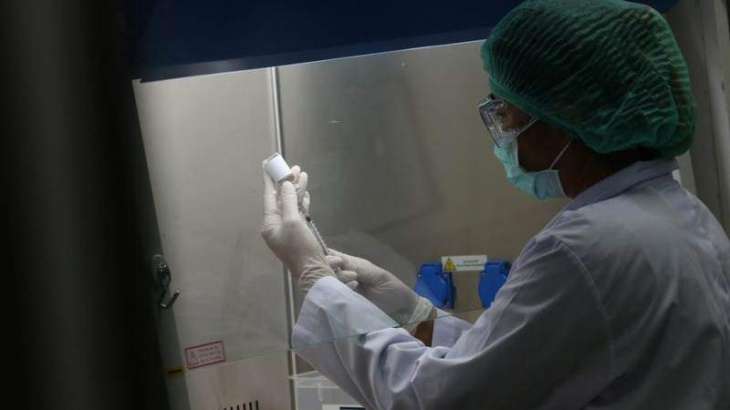The US legal system does not place any responsibility on vaccine producers for the safety of the product, which makes it difficult for people to receive compensation in case of injury, Patricia Finn, a prominent US attorney specializing in health issues, including vaccination rights, told Sputnik, adding that an anti-COVID-19 vaccine is unlikely to be mandatory in the United States
GENOA (Pakistan Point News / Sputnik - 23rd July, 2020) The US legal system does not place any responsibility on vaccine producers for the safety of the product, which makes it difficult for people to receive compensation in case of injury, Patricia Finn, a prominent US attorney specializing in health issues, including vaccination rights, told Sputnik, adding that an anti-COVID-19 vaccine is unlikely to be mandatory in the United States.
WHO's COVID-19 register currently lists 24 candidate vaccines that are already being tried on humans and another 142 that are yet at the stage of preclinical evaluation. One of the frontrunners is a vaccine using messenger RNA (mRNA) technology developed by the US biotech company Moderna. According to the first results of its clinical trials last week, it managed to generate a robust immune response. Now the company is preparing for the final, Phase 3 clinical trials. The US expects to secure as many as 300 million doses of vaccines by early 2021, with Moderna, Johnson & Johnson and AstraZeneca among prospective producers.
"Global vaccine producers or manufacturers have zero responsibility because under the US law, there is zero liability. So there is absolutely no incentive for vaccine manufacturers to make a safe vaccine," Finn said.
If one is harmed by the inoculation in the US, they can go to the so-called vaccine court in Washington, sue the US government for your injury and possibly get compensated.
"But there are restrictions as to what you can compensate, and it's extremely difficult to prove vaccine injury when you can't get any discovery or information from the vaccine maker. So, to answer your question, nobody is responsible," she said, asked who, if not producers, bears responsibility for the safety of the vaccines in the United States.
The so-called vaccine court is the Office of Special Masters, which was established within the US Court of Federal Claims and consists of eight special masters managing all vaccine claims. The court administers the National Vaccine Injury Compensation Program, which was established in 1986 and funded with an additional tax on every childhood vaccine in the United States. The Program deals with petitions for monetary compensation from persons allegedly suffering injury or death as a result of certain compulsory childhood vaccines.
Asked if she believes anti-COVID-19 vaccines can be made compulsory in the United States, Finn said she doubted it.
"I suppose that people will have a choice and a way to get the vaccine if they want it," she added.
Turning to the topic of the potential discrimination against those who will prefer to opt out of the coronavirus vaccine by service providers, such as travel companies, hotels or flight operators, the attorney said everybody has the right to choose whether to be vaccinated and any requests beyond that will must first prove the real health risk.
"If a hotel was to exclude people who are not vaccinated you would first have to prove that there is a coronavirus risk, and that is what is missing. Anyways, there have to be exemptions for those people who can't be vaccinated. For example, if I have a religious belief and I can't be vaccinated I should be exempt. Or if I have a medical condition that prevents me from having a vaccine, then I should be exempt. Anyways, the risk must be proven first," she continued.
Currently, all 50 states in the United States have legislation requiring specified vaccines for students, according to the National Conference of State Legislatures (NCSL). All states have laws granting exemptions for medical reasons, 45 states and Washington DC may allow exemptions on religious grounds, and 15 states allow philosophical exemptions for personal, moral or other beliefs.




